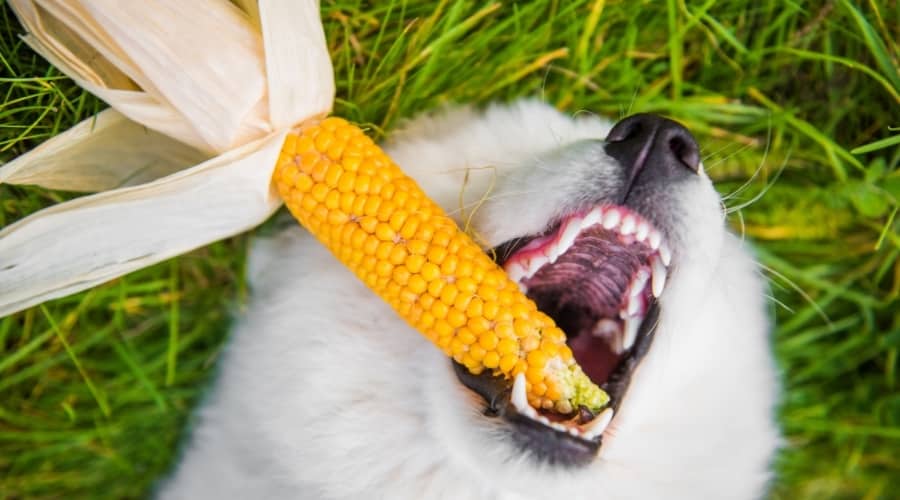News
Can dogs eat corn? Understanding the concerns and benefits

In the vast universe of canine nutrition, pet owners frequently grapple with the challenge of distinguishing between safe and potentially harmful foods for their furry companions. Among the myriad of dietary queries, one that often surfaces is, “Can dogs eat corn?”
This article delves into the heart of this question, unraveling the complexities surrounding corn as part of a dog’s diet. It aims to offer a balanced perspective on the risks and benefits, assisting pet owners in making informed decisions about including corn in their dog’s meals.-
Introduction to corn in a dog’s diet
Corn is a staple grain found in a multitude of human foods and is also a common ingredient in various commercial dog foods. Its prevalence in the canine dietary landscape begs the question of its safety and nutritional value for dogs.
To understand the impact of corn on a dog’s health, it is crucial to dissect its nutritional components and evaluate how they align with a dog’s dietary needs.
Nutritional benefits of corn for dogs
Corn is more than just a filler ingredient; it harbors nutritional benefits that can contribute positively to a dog’s health. It is a rich source of carbohydrates, providing energy to active dogs.
Corn also contains essential vitamins and minerals, such as Vitamin B, which supports the nervous system, and antioxidants like Vitamin E and beta-carotene, which protect against cellular damage. Additionally, the fiber in corn aids in digestion, promoting gastrointestinal health.
Potential risks associated with feeding corn to dogs
Despite its benefits, corn poses certain risks when included in a dog’s diet. One of the primary concerns is the risk of allergies. Although not as common as other allergies, some dogs might develop an adverse reaction to corn, manifesting as skin irritations or gastrointestinal distress.
Another consideration is the quality of corn used in dog food; low-quality or improperly processed corn can lead to contamination with mycotoxins, which are harmful to dogs.
Furthermore, corn’s high carbohydrate content may contribute to weight gain and obesity in dogs if not managed properly, especially in less active dogs.
Debunking myths and understanding the reality
The discourse surrounding corn in dog food is fraught with myths and misconceptions. A prevalent myth is that corn is merely a cheap filler with no nutritional value, which is far from the truth.
While it is essential to scrutinize the quality of ingredients in commercial dog food, dismissing corn’s potential benefits based on this myth is unwarranted.
Understanding the reality requires looking at scientific evidence and nutritional facts rather than succumbing to widespread misinformation.
Safe incorporation of corn into your dog’s diet
For pet owners considering the inclusion of corn in their dog’s diet, moderation is key. It is advisable to introduce corn gradually and in small quantities to monitor for any adverse reactions.
Opting for cooked, plain corn without added salt, butter, or seasonings is safer, as these additions can be harmful to dogs. Always consult with a veterinarian before making significant changes to your dog’s diet, especially if your dog has pre-existing health conditions or dietary restrictions.
Can dogs eat corn? Balancing the scales
The question of whether dogs can eat corn is not a matter of a simple yes or no. The answer lies in understanding and balancing the nutritional benefits against the potential risks. Corn can be a part of a healthy, balanced diet for dogs, provided it is offered in moderation and under the guidance of a veterinary professional.
As with any dietary decision, the welfare and health of the dog should always be the paramount concern.
In conclusion, navigating the complexities of canine nutrition requires a judicious approach, informed by scientific evidence and professional advice. Corn, when incorporated correctly, can be a beneficial component of a dog’s diet, contributing to their overall health and well-being.
Pet owners must remain vigilant, however, about the quality of corn and the overall balance of their dog’s diet to ensure a happy, healthy life for their canine companions. Also, here are some similar articles that you might find useful:
